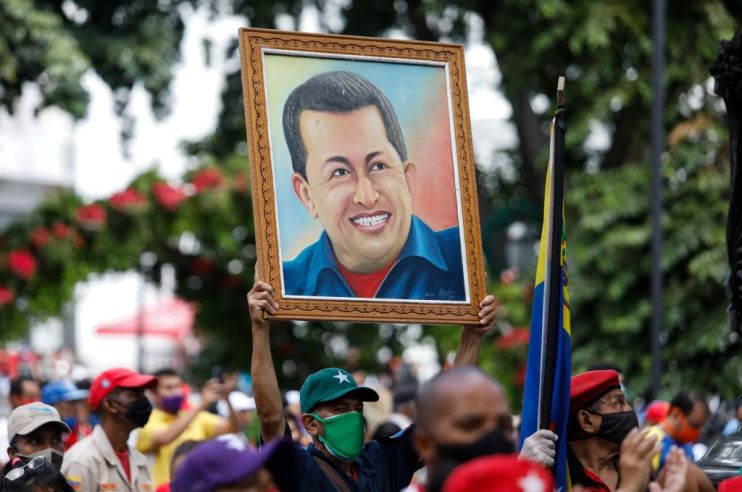Review: How socialism became the failed idea that never dies

German writer and economist Rainer Zettleman looks at a new book on the enduring – and illogical – appeal of socialism
Why have socialist ideas once again developed such a strong appeal, even though every single socialist experiment over the past 100 years has failed?
British economist Kristian Niemietz provides an answer in his book Socialism: The Failed Idea That Never Dies. He cites over two dozen socialist experiments, all of which, without exception, ended in failure.
But whenever socialists are confronted with specific examples from history, they always counter that these examples prove nothing, because in reality not one of them were truly socialist models.
Read more: Corporation tax hike: Rishi Sunak is on the way to creating a tax environment to stifle innovation
The most recent failed experiment: Venezuela
The most recent case in point is Venezuela.
In 1970, it was still the richest country in Latin America and one of the twenty richest countries in the world. Many people in Venezuela hoped that the charismatic socialist Hugo Chávez, who came to power in 1999, would solve the country’s many problems.
Chávez, however, was not only a beacon of hope for many poor people in Venezuela, he also inspired the utopian yearnings of leftists in Europe and North America with his aim of creating a “Socialism of the 21st Century.”
After the collapse of socialism in the Soviet Union and the Eastern bloc in the late 1980s, coupled with China taking its first steps along the path from socialism to capitalism, the left was left without a utopia of which it could dream.
North Korea and Cuba, the only remaining communist states, were not exactly a source of inspiration. Hugo Chávez filled the gap.
But, after this experiment also failed – with masses of people left starving or victims of soaring inflation and one-in-ten having fled the country – anti-capitalist intellectuals once again explain that “this wasn’t socialism at all.”
Idolising Stalin and Mao
Even mass murderers such as Josef Stalin and Mao Zedong were initially celebrated in the same way by leading intellectuals of their time.
They even turned a blind eye to the concentration camps in the Soviet Union, downplaying and, sometime, even admiring what Russia was doing with its Gulags.
In the 1970s, many Western intellectuals were enthusiastic about Mao Zedong and his Cultural Revolution, despite the fact that 45 million lives were lost during the greatest socialist experiment in history – the “Great Leap Forward” – in the late 1950s.
After Mao’s death, hundreds of millions of Chinese were freed from abject poverty as a result of Deng Xiaoping’s reform policies, and these same intellectuals were no longer as enthusiastic about China as they had been in Mao’s time.
Yet the recent history of the “Middle Kingdom” provides a great example of the benefits of capitalism. In 1980, 88 per cent of the Chinese population was living in extreme poverty; today, this figure has fallen to less than 1 per cent. A remarkable rise, even if progress in other areas – like basic human rights – has not been forthcoming.
Read more: Exclusive: Hong Kong refugee activists on the UK’s new visa scheme
Every socialist experiment goes through three phases
In his historical analysis, Niemietz shows that every socialist experiment to date has gone through three distinct phases.
During the first phase, intellectuals around the world are enthusiastic and praise the system to the heavens.
This honeymoon phase is always followed by a second phase of disillusionment: intellectuals still endorse the system and its “achievements,” but their tone becomes angrier and more defensive. They grudgingly admit that the system has shortcomings, but try to blame these on capitalist saboteurs, foreign forces, or boycotts by U.S. imperialists.
Finally, in the third phase, intellectuals seek to deny that the system was ever truly a form of socialism at all. This is the stage at which intellectuals claim that the country in question – for example, the Soviet Union, China or Venezuela – was never really a socialist country. While this argument is rarely put forward during the first phase of a new socialist system, it becomes the dominant view once the experiment has failed.
In his Lectures on the Philosophy of History, the German philosopher Hegel opined: “But what experience and history teach is this – that peoples and governments never have learned anything from history, or acted on principles deduced from it.” Perhaps this judgment is too severe.
Nevertheless, most people are incapable of generalising about historical experiences.
In one of their greatest PR achievements, socialists have succeeded in denouncing the system that has done more to fight hunger and poverty than any other economic system in history as “inhuman predatory capitalism,” while also once again loading “socialism” with positive associations in the minds of so many people around the world.
Read more: The Budget didn’t deliver a silver bullet for youth unemployment, but it’s a start